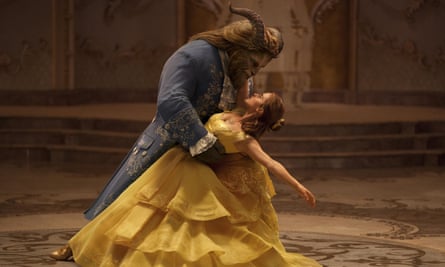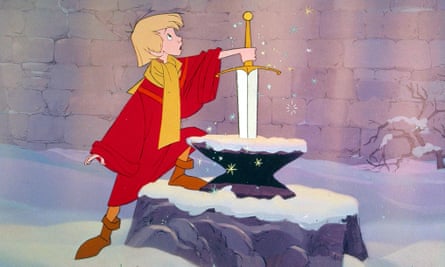Once upon a time, there was a little girl named Goldilocks. One day, while strolling about in a dark wood, she happened upon a charming cottage. Actually it was more of a filthy den dug deep in the earth. Goldilocks knocked, but when no one answered, she crawled down into the den.
On the table in the den, she found three bowls of porridge.
No she didn’t. Bears don’t have the fine motor skills to build tables, nor can they cook. And they don’t like porridge. What Goldilocks actually found was the rotting remains of three dead rabbits.
But she was very hungry. So she tried one. It was horrible. She tried another. It was no better. The third rabbit was disgusting, so she ate a cheese sandwich instead.
Goldilocks felt sleepy. She lay down in the first bed, which was less a bed than a pile of leaves mixed with mud and bear excrement. The second bed was the same. And the third. But Goldilocks was tired, so she fell fast asleep anyway.
As she was sleeping, the three bears came home. They did not say, “Someone’s been eating my porridge,” or “Someone’s been sleeping in my bed”, because bears can only speak bear.
They did what bears do. They ate her. And they lived happily ever after.
There are many people who believe this is the proper way to tell a fairy story. With facts. Because facts are true, and a fact-based education will, according to the British government, be far more useful at helping you to get a job once you’ve graduated from university.
Richard Dawkins, author of The God Delusion, agrees. He announced a few years ago that most fairytales do not stand up to scientific scrutiny. “There’s a very interesting reason why a princess could not turn into a frog,” he said. “It’s statistically too improbable.”
Fairytales are dangerous, Dawkins believes. Parents “should be fostering in children a spirit of scepticism instead of filling their heads with fantasy”. Children’s imaginations are dangerous.

It is a point upon which Dawkins and the British government agree. In recent years there has been a steep decline in the number of pupils taking up the arts – design, drama, dance, music, painting, sculpture. Study science, economics and maths, the government urges, and pursue a serious career – such as business, law, banking and finance. A real career, where you can make real money.
There is, of course, nothing wrong with studying mathematics and science. But without the arts, that study is wasted. You need imagination to be a great scientist (or a great politician or a great lawyer), just as you need it to be a great musician or writer. Imagination and the ability to tell a story will make anyone better at anything.
As Albert Einstein said: “If you want your children to be intelligent, read them fairytales. If you want them to be more intelligent, read them more fairytales.” Einstein recognised the importance of imagination and storytelling when grappling with the most complex and difficult problems of the universe.
Science tells us that 7 billion improbably designed humans live on a ball made of iron, rocks and silicates, floating in a regular ellipse around a hot star in the middle of unimaginable infinite space. And furthermore, these humans have designed Teslas, cricket and waterboarding.
Is there a more unlikely story? Most scientific explanations for the workings of the universe are so weird, you’d have to be Douglas Adams to think them up. The most popular begins with a huge explosion out of nothingness, from which a vast infinity of objects emerge, moving away from each other for billions of years until one day the whole thing loses momentum and shifts into reverse, collapsing to the size of a raisin.
Really?
Dawkins thinks the whole idea of Adam and Eve in the garden of Eden is absurd, but what sane person dreamed up the big bang theory?
At the start of every amazing story – literary or scientific – is a person with enough imagination to ask a good question. A physicist might ask: “What makes up all that empty space in the universe?” A geneticist might ask: “Is there a different way to cure cancer?” A science fiction writer might ask: “What do creatures in another galaxy look like?” You or I might ask: “Will anyone ever want to have sex with me?” or “How can I live in a world where Donald Trump is president?”
The job of every human is to imagine what one life might achieve, to think about why we live and why we die, why we fall in love with one person and not another; why there’s war, why some people are black and some white, some rich and some poor. Our job is to think about how to live on this planet without destroying it, to reimagine the past and the future of the human race; to examine all the complex, terrifying, hopeful possibilities in history, in politics, in space – and in the space inside our heads.
One of the best ways to start answering questions such as “who am I?” and “what can I do in the world?” is to read books.
I would say that. I’m a writer. But in my lifetime I’ve lived thousands of lives. I’ve lived on other continents and other planets, been a champion runner, a neurosurgeon, a standup comedian. I’ve survived Auschwitz and a plane crash in the Andes, fought with the East India Company in the 1857 uprising. I’ve bombed Ferrara, crossed the Pacific on a raft, advised Henry VIII not to marry again. I’ve lived inside the head of a man, a horse, a vampire, a gentle Neanderthal. I know what it feels like to be different, to be on the wrong side of history, to be someone other than a middle-class, middle-aged suburban-born American writer who now lives a somewhat ordinary life in London.

Much of this I have learned by reading books.
Imagine a person who never reads books. Perhaps a person like the president of the United States. What might it do to your brain, never to be anyone other than yourself, in your own here and now? To be a person who knows nothing about how it feels to be a Roman legionary, a Victorian chimney sweep, to be poor, queer, a refugee, a Muslim, a North Korean, a woman, a child, a warrior – who knows nothing about how it feels to be someone else.
Without stories we are trapped in a static version of ourselves.
Stories give us choices. In 2013, a 16-year-old girl stood up at a book festival I attended, saying how much she appreciated the way teen novels were helping to change gender and sex stereotypes at her school. There was less bullying, she said, more acceptance of difference. Since 2013, it seems as if our entire understanding of gender and sex has changed – what was once considered unnatural has become mainstream. Caitlyn Jenner made celebrity history. Stories told us how it felt.
Each of us is writing a life story. Every day we write another chapter. Some sections are page turners, cliffhangers, potboilers. Others drone on endlessly without incident – the hero will never fall in love, find a career, figure out how to be a person. Each of us is responsible for imagining the best life possible: the funniest, bravest, most meaningful.
Most days I wake up thinking that the world is a mess. I worry about climate change, refugees and world war III. I worry about Trump and Brexit and sexual slavery and children dying of starvation.
On those days, I think about TH White’s The Sword in the Stone, and Merlin speaking to the young King Arthur. “The best thing for being sad is to learn something,” says Merlin. “That’s the only thing that never fails.”
I’ve learned to write my own fairytales. In my fairytale, the bears don’t eat Goldilocks. She and the baby bear fall in love. They run off together, grow up, have their own baby. The baby is half-human, half-bear; brave and strong and fierce. They call her Celeste, and she grows up to be president of the United Nations of Earth. She governs wisely over a happy and peaceful world for generations to come.
That’s my fairytale. Now write yours.
This is an edited version of a speech given at the Berlin literature festival.

Comments (…)
Sign in or create your Guardian account to join the discussion